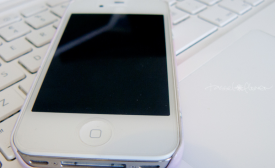united states

How does what we know about information and communication technology (ICTs) and persuasion help practitioners makes sense of how to integrate technology into the mission of public diplomacy? We know that ICTs can be:
A) Persuasive by its ability to facilitate or enable other attempts at persuasion.
B) Persuasive as a transmission vehicle (the medium endows some form of credibility or legitimacy).
C) Persuasive as a kind of context for communication - an intermediary - that enables the influence potential of social ties.
California recently made foreign-policy history by becoming the first sub-national government to sign an agreement with China’s powerful National Development and Reform Commission (NDRC), which oversees the country’s economic growth. Just as significant is the objective: fighting climate change by circumventing deadlocked decision-making in Washington and Beijing.
According to most media observers, Iranian President Hassan Rouhani's recent trip to the United States, and his phone conversation with President Barack Obama, went as well as could be expected. The New York Times called Rouhani "blunt and charming," and the BBC heralded a "new tone" to his remarks.
Just before the American ground war in Vietnam began in March 1965 with the landing of a brigade of US Marines at Danang, General Vo Nguyen Giap, who had been commander in chief of Communist armed forces in Vietnam since 1944, told a television interviewer that “Things are going badly for the enemy, because the South Vietnamese soldiers do not want to fight for the Americans. But we are in no hurry. The longer we wait, the greater will be the Americans’ defeat.”
Last year, on the anniversary of the September 11, 2001, terrorist attacks in the United States, an assault on the US mission in Benghazi, Libya, led to the deaths of four American diplomats, including Ambassador J. Christopher Stevens. The attack, which caused the US government to cancel public-diplomacy programs, evacuate offices, and tighten security substantially, was a massive setback for American diplomatic efforts in Libya.
While Iranian President Hassan Rouhani tries to ease friction with the United States, chants of "death to America" on Friday may deepen doubts in the West that Tehran is ready for a deal as talks on its nuclear program resume next week. Rouhani's resounding June election victory gave him a popular mandate to reverse Iran's confrontational foreign policy and attempt to win relief from international sanctions imposed over concerns Iran may be seeking a nuclear weapons capability.
How does what we know help practitioners makes sense of how to integrate technology into their mission? We know that information and communication technology can be: A) persuasive by its ability to facilitate or enable other attempts at persuasion, B) persuasive as a transmission vehicle (the medium endows some form of credibility or legitimacy), or C) persuasive as a kind of context for communication, an intermediary, that enables influential power of social ties.
DanceMotion USA, a State Department program produced by the Brooklyn Academy of Music, sends American companies to perform abroad for cultural diplomacy but also arranges collaborations between American troupes and foreign ones.







